By Vox Civis
Another of the regime’s self-proclaimed ‘pillars of strength’ is taking heavy flak these days and with good reason. For months, the government has basked in its own rhetoric of global engagement and diplomatic renewal. Yet, last week’s events in Geneva have stripped bare that façade. The United Nations Human Rights Council (UNHRC) adopted yet another resolution on Sri Lanka: A/HRC/60/L.1/Rev.1: Promoting Reconciliation, Accountability and Human Rights in Sri Lanka, thereby effectively extending the mandate of the Office of the High Commissioner for Human Rights (OHCHR) for a further two years. What was different this time was not the content of the resolution but Colombo’s reaction: a stunning silence, a failure to even request a vote, and an abrupt departure from decades of diplomatic precedent.
For a country that has repeatedly fought these resolutions with every ounce of political and diplomatic energy, the nonchalance displayed by the current National People’s Power (NPP) administration has understandably sparked both confusion and outrage. While successive governments have contested such resolutions as matters of principle and fought tooth and nail both in and out of Geneva, this regime allowed the latest one to be adopted without any resistance. Not a single division was called for, not even a symbolic protest to register dissent. The gesture – or the lack of one – sent the chilling message that Sri Lanka has quietly conceded the moral and legal ground it fought so fiercely to defend all these years.
A resolution without resistance
The resolution, co-sponsored by the United Kingdom, Canada, Malawi, Montenegro, and North Macedonia, with 22 other countries including Germany, Switzerland and Ireland, renews the OHCHR’s evidence-gathering project on Sri Lanka and extends the UN’s oversight on issues of accountability and human rights until 2027. It specifically calls upon Colombo to repeal the draconian Prevention of Terrorism Act (PTA), amend the controversial Online Safety Act, ensure credible investigations into emblematic human rights cases and allocate resources for exhumations at mass-grave sites, among others. By not contesting these clauses, the NPP regime has signaled not only culpability, but that it is ready to deliver.
In essence, the resolution continues what began in 2015 under the Yahapalanaya administration; a process that has kept Sri Lanka on the UN’s accountability watchlist. The difference now lies in how Sri Lanka chose to respond. By refusing to call for a vote or mobilize diplomatic allies, the government effectively allowed the resolution to pass unopposed. For Foreign Minister Vijitha Herath, this was a pragmatic decision. In his words, calling for a vote would have been “an unnecessary problem,” given Sri Lanka’s past failures to secure majority support. He argued that previous governments had “wasted public money and time” in futile attempts to defeat similar resolutions.
But such reasoning betrays a dangerous misunderstanding of diplomacy. International relations are not simply about winning or losing votes, they are about projecting confidence, consistency, and sovereignty. Even if defeat was certain, registering opposition was a symbolic but essential act of statecraft. It signaled to the world that Sri Lanka would not passively accept judgments handed down from Geneva. In abandoning that posture, the government has ceded both moral authority and diplomatic ground, leaving the impression of a state too timid to defend itself.
Perception of culpability
Not just that, this silence at Geneva carries implications far beyond the walls of the Human Rights Council. Symbolism matters in international diplomacy, and in this case, silence equals consent. By not opposing the resolution or calling for a division, Sri Lanka has inadvertently validated the accusations levelled against it. The government’s passivity has been interpreted globally as a tacit admission of culpability, particularly regarding the alleged human rights violations attributed to the security forces during and after the war.
The Foreign Minister’s infantile insistence that non-participation would prevent “unnecessary problems” ignores the deeper political cost of moral surrender. What was once a matter of principle has now become a question of legitimacy. To the world, Sri Lanka’s silence reads as submission and to its own citizens, it looks like betrayal. The same military establishment that once shielded the state from disintegration now finds itself abandoned by the state it protected.
This sense of abandonment is amplified by the contrast with the past. Even when Western nations opposed Sri Lanka, friendly states such as Russia, China, Pakistan and Iran stood firmly by its side. They may not have shared Sri Lanka’s domestic politics, but they respected its sovereignty. Yet this time, when the Council President asked whether a vote was required, not a single country or traditional ally, spoke up. Thus, the resolution was adopted without a vote while Sri Lanka stood completely alone.
The unanimous adoption of the resolution this time around is a singular victory for the Tamil diaspora community that has been dreaming of just such an outcome ever since the war ended in 2009 and the first such resolution was adopted that same year. Which is why Sri Lanka’s isolation is unprecedented and telling. The self-congratulatory tours and speeches that have marked the regime’s foreign policy with more than ten official visits by the President in just the past year, have clearly not translated into tangible diplomatic capital. None of those nations the President visited came to Sri Lanka’s defense when it mattered most. The optics could not be more damning.
Economic and strategic fallout
The implications of this diplomatic retreat extend far beyond Geneva. The NPP appears to be unaware that the European Union’s GSP+ trade concessions are conditional on adherence to international human rights norms. The passive acceptance of UNHRC resolutions strengthens the EU’s case to review or withdraw those benefits, potentially crippling Sri Lanka’s export competitiveness. At a time when the US tariff regime remains unpredictable and has wreaked havoc with the country’s export industry, such a move would be disastrous.
Coincidentally, the World Bank delegation that visited Colombo in the same week as the UNHRC session expressed concern over the country’s failure to attract foreign direct investment. That concern will now deepen given that investors look for signals of political stability, institutional integrity, international credibility, etc. A government that appears diplomatically isolated and morally uncertain sends the opposite message.
The irony, of course, is painful. The regime’s initial promise was to “restore global confidence” and “rebuild trust with the international community.” At least that was the ‘official’ message after each of the President’s foreign trips. Instead, its first year in office has delivered a series of diplomatic own goals ranging from missing key multilateral summits such as BRICS and the Shanghai Cooperation Organisation, to alienating long-standing partners, and now, this silent surrender in Geneva. Each of these missteps have chipped away the goodwill accrued to Sri Lanka over many decades.
HR narrative revisited
To be fair, the government insists that its commitment to reconciliation and human rights is genuine. The Ministry of Foreign Affairs in an official statement following the UNHRC vote, reaffirmed that Sri Lanka rejects the resolution but remains determined to pursue domestic reforms and mechanisms. It highlighted measures already taken including plans to replace the PTA, establish a public prosecutor’s office, and ensure the functioning of the Office on Missing Persons (OMP). It also noted that during his June visit, the UN High Commissioner for Human Rights had witnessed progress and recognized the government’s willingness to engage constructively.
Even though China, Ethiopia and Cuba echoed those sentiments and praised Sri Lanka’s progress in restoring its economy and protecting human rights, they were conspicuous by their silence at the critical hour. At the end of the day, expressions of sympathy, however welcome, are not substitutes for concrete diplomatic action.
The United Nations Committee on Enforced Disappearances (UNCED) added to Colombo’s woes by releasing a damning report in the same week. It noted that of the nearly 17,000 cases of enforced disappearances, the OMP had traced only 23 individuals. The committee cited a “high level of impunity,” weak forensic capacity and the absence of a centralized database. It urged Sri Lanka to strengthen institutions, locate mass graves, and ensure genuine accountability. This report, coupled with the new OHCHR mandate, effectively cements Sri Lanka’s place under global scrutiny for at least two more years.
Appeasement or survival?
Critics, particularly on social media and within opposition ranks have been brutal. They allege that the government’s reluctance to oppose the resolution was deliberate appeasement, a gesture to placate segments of the Tamil diaspora who are alleged to have financially backed the ruling party’s election campaign. While these allegations are politically charged, they tend to resonate with a growing public perception that the regime is willing to trade the nation’s dignity for political survival. The argument advanced by Foreign Minister Herath that opposing the resolution would have been futile, rings hollow when viewed through this lens.
Diplomacy is not measured by victory alone. It is about standing up for principle even when defeat is certain. By contrast, appeasement, once normalized, becomes habit-forming. It is in this backdrop that the Opposition parties have warned that the regime may even inadvertently give the nod to the Rome Statute, placing soldiers who fought the war under the jurisdiction of the International Criminal Court (ICC).
If Sri Lanka signs or accedes to the Rome Statute under external pressure, the consequences for its military establishment would be profound. The very officers who carried the nation through its darkest years could find themselves subject to international prosecution. For many Sri Lankans, that would represent the ultimate betrayal; a betrayal that began not with a signature on a treaty but with a failure to raise a hand in Geneva. That is how profound this latest misadventure could turn out to be even though it appears trivial to the Foreign Ministry.
Shrinking global footprint
The erosion of Sri Lanka’s diplomatic standing is not limited to the UNHRC. The government’s absence from high-level international forums has been conspicuous. The President’s non-attendance at the BRICS and Shanghai Cooperation summits – platforms where both Russia and China, traditional allies, wield considerable influence – has puzzled observers. These were opportunities to reinforce strategic partnerships and counterbalance Western pressure. Instead, the NPP continues with symbolic visits at taxpayers’ expense that yield little substance.
Once, Sri Lanka’s foreign policy was characterized by deft balancing; a careful dance between East and West, global North and South. That balance has now given way to drift. The result is a shrinking global footprint: neither Washington nor Beijing, neither Delhi nor Moscow, seems fully invested in Colombo’s cause. The regime’s boast of ‘non-alignment with friends everywhere’ has turned into irrelevance everywhere.
Domestically, the Geneva debacle exposes a deeper malaise: a government increasingly detached from its own citizens’ sense of national dignity. For many Sri Lankans, be they Sinhalese, Tamil, or Muslim, the issue is not merely legal or procedural but about self-respect. The country’s image, once projected as a proud post-war democracy seeking healing on its own terms, has now been reduced to one of passive compliance.
The broader lesson
The Foreign Minister’s defense in Parliament, citing efficiency and pragmatism, has done little to quell the outrage with opposition MPs questioning the omission of key issues such as the holding of provincial council elections. Ultimately, what should have been a moment of diplomatic clarity has instead become a symbol of political confusion.
Besides, the Geneva episode serves as a microcosm of a broader problem: the regime’s lack of strategic coherence. Foreign policy, at its best, is an extension of domestic policy. When governance at home is marked by indecision, opacity, and reactive politics, diplomacy abroad inevitably mirrors those flaws.
In the past, Sri Lanka weathered international criticism not merely through alliances but through a sense of national purpose. Whether one agreed with their policies or not, previous administrations from Mahinda Rajapaksa’s defiance to Ranil Wickremesinghe’s engagement had a clear stance. Today, that clarity is gone and what remains is a foreign policy of drift, guided neither by conviction nor by consensus.
The price of silence
In the grand theatre of international diplomacy, silence can be more eloquent than speech. When Sri Lanka failed to call for a vote at the UNHRC, it did not merely skip a procedural formality but forfeited a platform of dignity. The country that once stood proud against global pressure has now signaled – by default – that it has capitulated to it.
The NPP’s foreign policy, advertised as pragmatic and reformist, is increasingly beginning to resemble surrender. The Geneva resolution may not immediately change the country’s fortunes, but its symbolic weight will linger. It tells investors that Sri Lanka is under a cloud, tells allies that it is unreliable, and tells its own citizens that their leaders no longer have the courage to defend the nation’s dignity on the world stage.
In diplomacy, as in life, standing silent is sometimes the loudest admission of all. The government may defend its passivity as prudence, but history will likely remember it as the moment Sri Lanka lost its voice, and with it, a piece of its sovereignty. Sooner than later, the NPP regime will come to realise that Sri Lanka’s silent surrender at Geneva was a diplomatic retreat with lasting consequences for both the party – to a lesser extent, and the nation – to a greater extent.
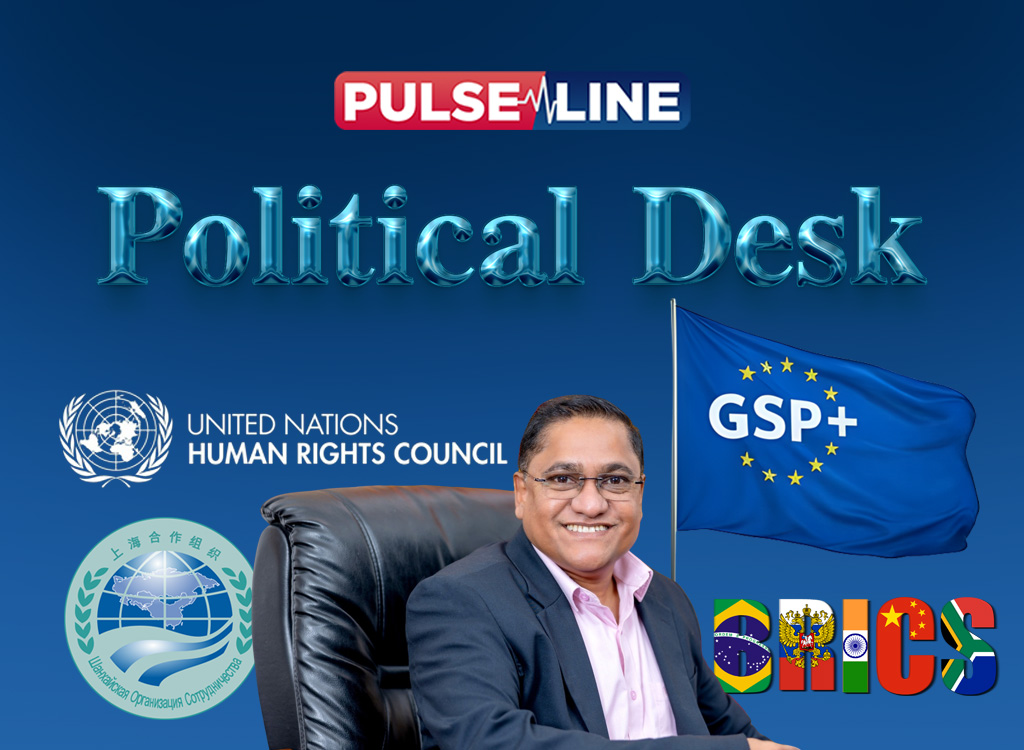
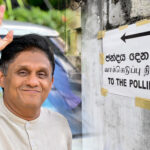
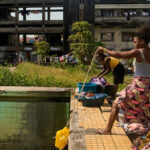

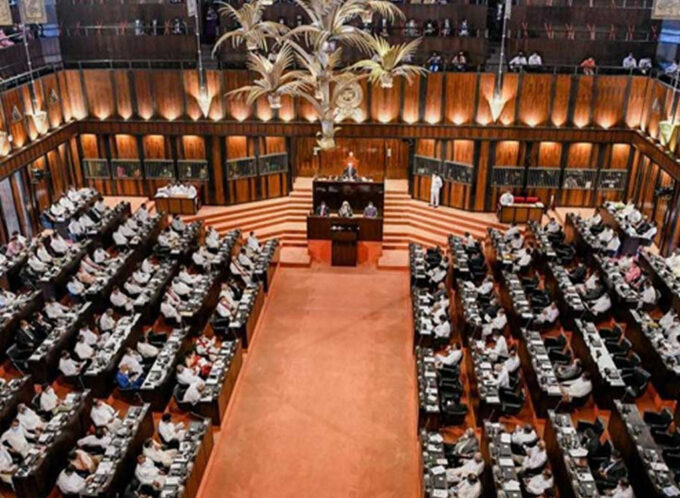

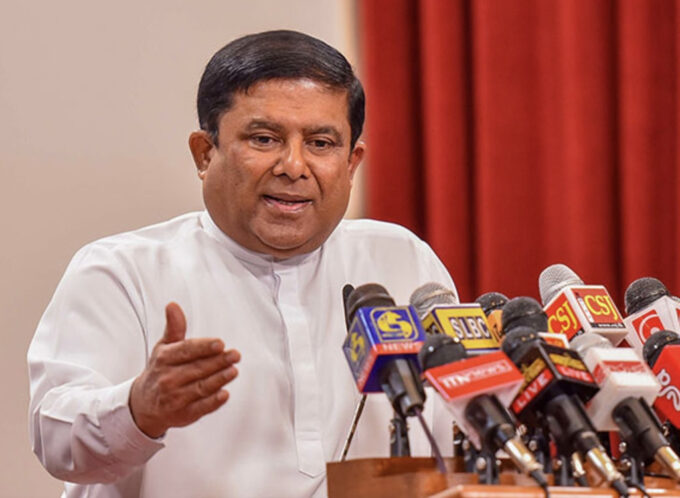

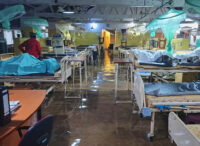
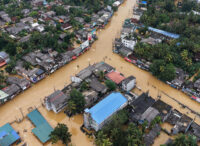
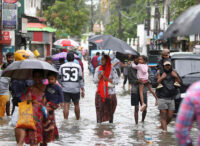
Leave a comment